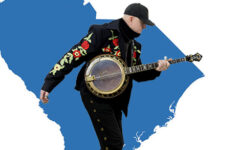![]() Much ado has been made recently about a potential restriction on the import/export of particular woods used in the construction of musical instruments. The restrictions come in the form of a number of proposals before the CITES (Convention on International Trade in Endangered Species of Flora and Fauna) board this June.
Much ado has been made recently about a potential restriction on the import/export of particular woods used in the construction of musical instruments. The restrictions come in the form of a number of proposals before the CITES (Convention on International Trade in Endangered Species of Flora and Fauna) board this June.
The woods affected by proposals E14-30, E14-31, and E14-32 are pernambuco, Honduran Rosewood and Nicaraguan Rosewood. The rosewoods are obviously tonewoods used in the construction of fingerboards, bridges, backs and sides for guitars, banjos and mandolins. Pernambuco is the wood used to construct bows for almost all bowed instruments, including violins and basses.
E14-31 and E14-32 would restrict the import/export of the rosewoods timbers to those certified by the agency. E14-30 is the most strenuous proposal, and would have adverse effects for professional musicians. E14-30 would restrict not only the trade of pernambuco timbers, but also finished products. This restriction would make it extremely difficult for fiddle players to travel internationally.
The reason for such restriction is that the wood is already restricted in it’s native country of Brazil, but is still being harvested illegally and smuggled out of the country to other nations, in which it is not protected, for use in the construction of bows.
Inclusion of Caesalpinia echinata in CITES Appendix II is necessary because it is the only species used to make bows for musical instruments. Trade in this species must be regulated in order to avoid the need to list it in Appendix I in the near future.
While this sounds reasonable, and the proposal lists the current population of the trees at a mere 1754, George Gruhn pointed out, in a recent newsletter, that the restriction should be limited to the timber and not the finished products, as this will adversely affect the livelihood of many professional musicians, and could set a precedent for further restrictions in the future.
Until now, restrictions on finished goods have been on items listed in Appendix I (which includes Brazilian rosewood, ivory and tortoiseshell). While there are many guitars that don’t contain Appendix I materials, virtually every good violin bow is made of pernambuco. The permits required to cross international borders with a violin bow will make it effectively impossible for a violinist to legally carry his own bow on an international tour. Furthermore, the proposal, if approved, would set a precedent for listing finished goods on Appendix II that could easily carry over to Honduras mahogany, one of the three mahogany species currently on Appendix II but restricted only for raw lumber. Honduras mahogany (Swietenia macrophylla, aka Brazilian mahogany or bigleaf mahogany) is much more prevalent on guitars than Brazilian rosewood, and a restriction on finished goods would all but kill international guitar trade.
The US Fish & Wildlife Service is our domestic agency that would be involved in approving the proposals, and issuing certificates for these woods. NAMM (National Association of Music Merchandisers) is organizing an effort to persuade the USFWS not to accept such restrictive rules.







